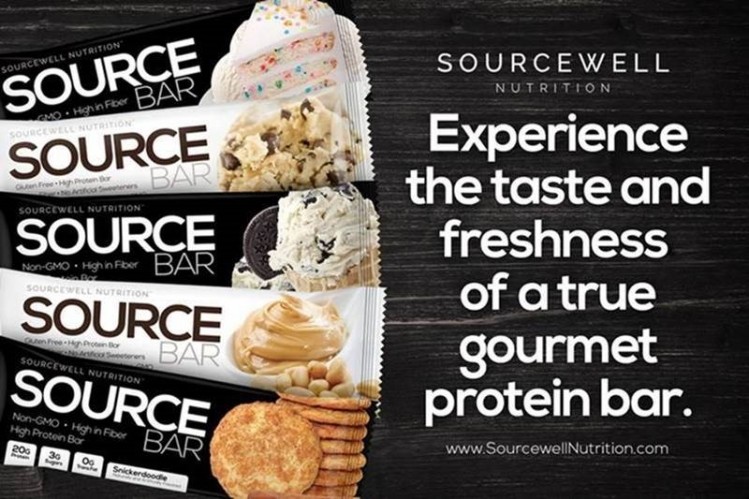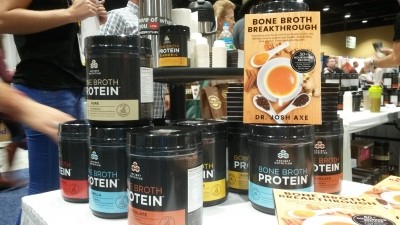Source Bar wants to bring gourmet protein bars to the masses

“Instagram and Facebook have slowly become the lifeline for some companies in the sports nutrition industry and we plan to capitalize on that as well,” the spokesperson added. A pilot run to test the marketability of Source Bar, a grass-fed whey protein bar, was launched six months ago.
The product was officially launched at the end of January 2017 with momentum already built from social media presence. “Satisfied customers are posting pics of them eating Source Bars and giving them rave reviews,” the spokesperson said, adding that new fans have shared the product on their social media.
There are five varieties of the bars: Chocolate Chip Cookie Dough, Chunky Peanut Butter, Cookies and Cream, Birthday Cake, and Snickerdoodle, on sale online and at select retailers around the nation.
Sleek, simple, and gourmet appeal
As sports nutrition increasingly becomes mainstream, gone are the days of hyper-gendered or sporty branding in terms of package design, brand name, and marketing typologies. The branding strategy Source Bar is using embraces minimalism, an effort to capture the product’s ‘clean label.’
“We wanted to create something that was minimal, sleek and stylish. We wanted to create a look that wasn't too loud or flowery, but rather as clean as the product itself,” the spokesperson said.
“Many bars out there can be viewed as ‘candy bars in disguise,’” the spokesperson added. “We use a New Zealand grass-fed whey protein that is RBST free as our primary protein source.” Every bar packs 20g of protein with only 2g to 4g of sugar, and based on the ingredients list on their Chocolate Chip Cookie Dough variety, sweetness comes from stevia.
A case for grass-fed whey versus plant protein
America’s obsession with protein continues—Euromonitor data revealed that sales of sports protein bars (defining bars with more than 20g of protein per serving) increased from $418.6 million in 2015 to $438.3 million in 2016, a 4.7% increase.
And though there’s limited science to back up the superiority of nutrition derived from grass-fed cow products, the call-out ‘grass-fed’ is gaining momentum among consumers, especially for dairy and dairy-derived products, according to a report by investment banking form Silverwood Partners.
Though plant-based proteins are also gaining traction, the spokesperson said that the market is more niche. “We’re here to cater to the demands of the mass market,” the spokesperson said. “Grass-fed whey protein offers a subtle creamy flavor that is nearly impossible to achieve with plant based proteins alone in my opinion.”
CORRECTION: A previous version of this article incorrectly identified the founder of the company.
















